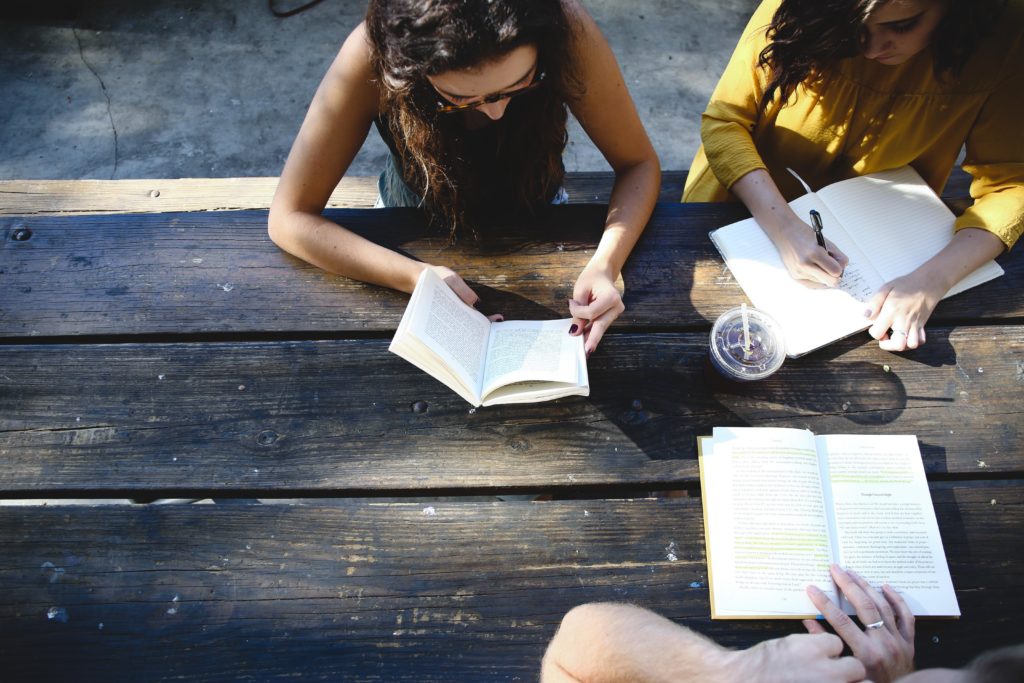When living overseas as an international student, it can seem like each day brings a new experience or exciting challenge. Luckily, there’s a wealth of advice and support out there to help you strike that important balance between work, study and social commitments while maintaining your mental and physical health.
Someone who knows a thing or two about health and wellbeing is Steph Prem, a motivational speaker and former Winter Olympian who advocates for a healthy lifestyle. We asked Steph to share her top tips for balancing life, work and study in Australia.
Six tips for balancing life while studying
Set achievable goals
The first step in planning your life as an international student in Australia is to set goals for what you wish to achieve, especially when it comes to managing your health.
“A healthy lifestyle is a great place to start,” says Steph. “Set goals and intentions for all facets of your wellbeing – not just your physical health, but also your mental, emotional and spiritual health. Implement regular, manageable habits which have a positive impact on your physical and mental wellbeing.”
When creating your plan, you might like to reflect on how much sleep you plan on getting each night, for example, or how often you wish to exercise. You could then incorporate that goal into your study plan and work commitments.
Take care of your body
Sometimes, leading a busy student life can mean neglecting regular, healthy meals and instead choosing to eat a lot of unhealthy food. But Steph says it’s important to eat well, exercise often and generally stay active, all of which form the basis of a healthy lifestyle.
“As a former professional athlete, I’ve learned that I need to foster positive lifestyle habits like mindfulness, proper nutrition, sufficient sleep, regular exercise and hydration to perform at my best,” says Steph. Try to identify what lifestyle habits you can practise to stay on top of your commitments.
Stay organised
You might be curious about the best ways of being a less anxious student, or how to juggle multiple deadlines. One solution for this is to develop a routine. Here are some pointers for organising your time:
- Tidy your physical workspace or place of study, as well as digital files on your computer or laptop.
- Create a list of tasks to accomplish each day, week and month, and prioritise them based on importance and urgency.
- Focus on one task at a time – and try not to distract yourself by starting something else or looking at social media before you’re finished!
- Give yourself an incentive for when you’ve completed all your tasks. For example, you could treat yourself to eating dinner out, or heading away for the weekend.
Knowing you have a plan can help reduce stress and increase motivation, which has a positive effect on your productivity and mental wellbeing.
Be realistic about your schedule
With so much to see and do while living in Australia, it’s natural that you’ll want to say yes to everything! We certainly encourage you to get out there and seek new experiences, but you should also stay conscious of what’s realistic for your circumstances.
Overcommitting yourself can leave you feeling like you’re under constant pressure and don’t have time to relax. The way around this is to focus on the essentials, like your classes and assignments, casual employment or a weekly catch-up with friends. Then, you could perhaps consider taking on other commitments – your ‘nice-to-haves’, whatever they might be – at a later point.
In other words, practise the art of saying no. This will give you more space to achieve your core goals for study, work and your social life.
Communicate with those around you
If you do need to take time off work or study to focus on other things, Steph recommends being honest with those around you.
For instance, if you’re studying for upcoming exams and need to concentrate on your academic work, be open with your employer about the need to take time off. “Start by explaining your situation clearly and respectfully, and come to them with a solution instead of a problem,” says Steph.
According to Steph, an example of something you could say is, “I love working here, but my study and exams need to take priority during the next few weeks.” That way, you can clearly communicate your needs to your employer and balance work with study.
Embrace the unexpected
Steph says that she’s also lived and worked overseas, and understands how daunting it can be to adapt to a different country, make new friends and manage commitments.
Steph advises seeing new situations in a positive light. “[It’s] an opportunity to start afresh and try new things! Get out and about and explore your new city, meet people, enjoy the local lifestyle and get excited about the new career opportunities you can create through your study or work,” she says.
You can’t prepare for everything – but that gives you an exciting opportunity to embrace new activities and challenge yourself in a fulfilling way.
Helpful apps and resources
Whichever path you take to manage your wellbeing, it’s important to look after your mental health. If you’re interested in reading more about how to stay happy and healthy while studying in Australia, you can browse a variety of health and wellbeing resources from Medibank:





